If you're a landlord facing the tricky task of notifying your tenant about a rent increase, crafting the right letter can make all the difference. It's essential to communicate clearly and respectfully, setting the tone for a smooth transition. This letter not only serves as a formal notice but also provides an opportunity to maintain a positive relationship with your tenant. Ready to learn how to structure your rent increase notice effectively? Let's dive in!
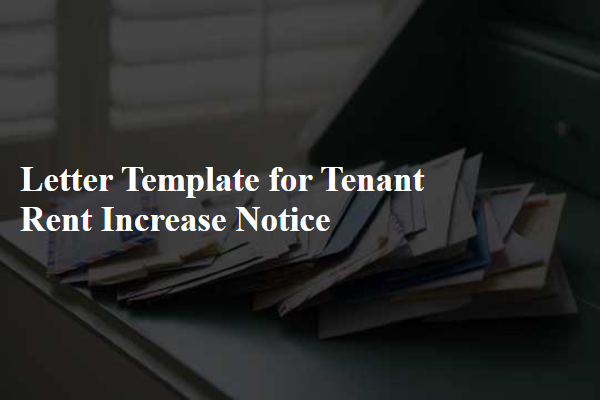
Clear Communication
A rent increase notice serves to inform tenants about a scheduled rise in rental fees. This notice typically outlines specifics such as the percentage increase, reasons behind the adjustment, applicable laws in the jurisdiction, and the effective date of the new rent amount. For example, a landlord in California may adjust rent by 5% annually, in accordance with state guidelines. Clear and respectful communication is essential, promoting transparency and maintaining a positive landlord-tenant relationship. Providing at least 30 days' notice is a standard practice, ensuring tenants have ample time to adjust their budgets or seek alternatives if necessary.
Legal Compliance
A rent increase notice must adhere to legal requirements to maintain compliance with state and local laws, ensuring the tenant's rights are protected. Specific regulations often mandate a minimum notice period, typically ranging from 30 to 90 days, depending on jurisdiction. For example, California law requires a 60-day notice for rent increases over 10%. The notice itself should clearly state the new rental amount, effective date, and previous rent amount. Additionally, inclusion of the lease agreement terms is vital, providing context for the increase. Documentation should be sent via certified mail to establish a verified record of communication, safeguarding against disputes. Timely delivery of this notice is critical to avoid potential legal repercussions and maintain positive landlord-tenant relationships.
Notice Period
A rent increase notice must be delivered to tenants according to specific legal standards, often requiring at least 30 days' notice before the new rate takes effect. This notification needs to clearly define the current rental amount, the new rental amount, and the effective date of the increase. Additionally, landlords are usually obligated by local laws to provide tenants with written documentation, outlining the rationale behind the increase, such as property maintenance costs, market rate adjustments, or improvements made to the rental property. Clarity in communication helps foster a positive tenant-landlord relationship during this potentially contentious process.
Justification for Increase
In numerous urban areas, rising rental costs often lead to necessary rent increases, driven largely by economic factors. In cities like San Francisco, the average rent has soared by over 25% since 2020 due to high demand and limited housing availability. Property maintenance expenses, including routine repairs, landscaping services, and utility costs, have surged alongside inflation rates. Furthermore, property taxes have increased significantly, reflecting higher valuations in competitive real estate markets. These financial pressures necessitate adjusting the rent to ensure continued investment in the quality of the property and its amenities, ensuring a comfortable living environment for tenants.
Contact Information
A tenant rent increase notice is an important communication regarding changes in rental agreements. This notice typically includes key details such as the landlord's name, contact information (including phone numbers and email addresses), the tenant's name, property address (including unit number in apartment complexes), and the date of the notice. Additionally, the specific amount of the rent increase, effective date (typically 30 days notice or as per local regulations), and any relevant local rental laws can be essential to ensure clarity and compliance. Clear and professional formatting helps convey the notice's seriousness, while a polite tone ensures a respectful landlord-tenant relationship is maintained.

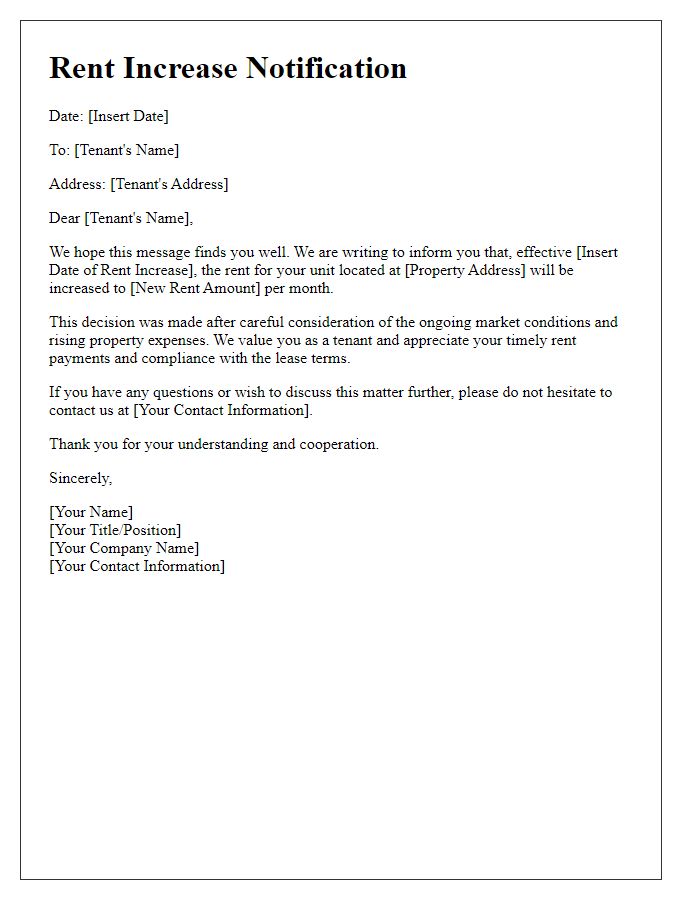
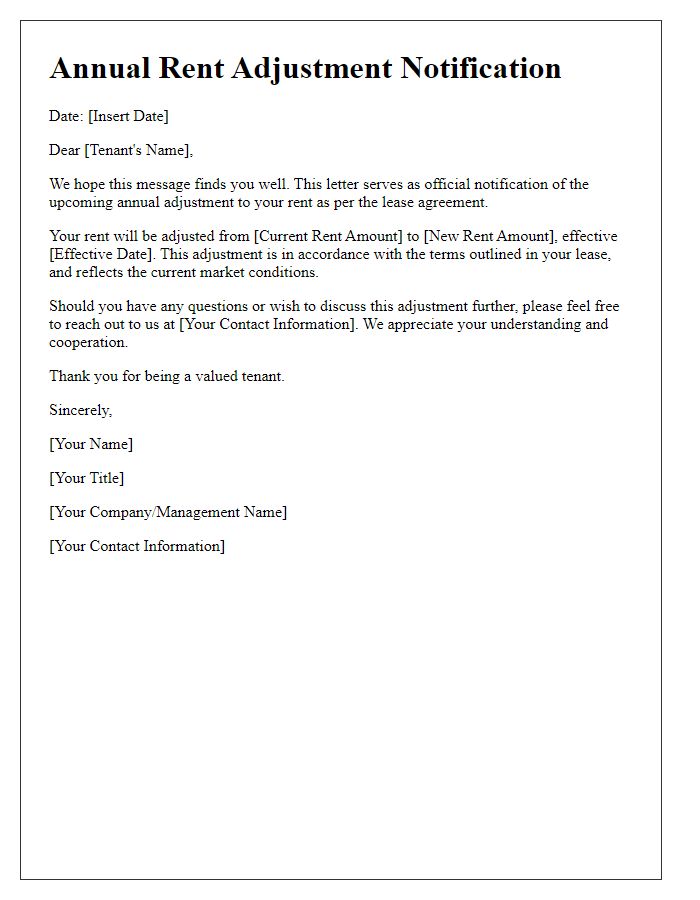
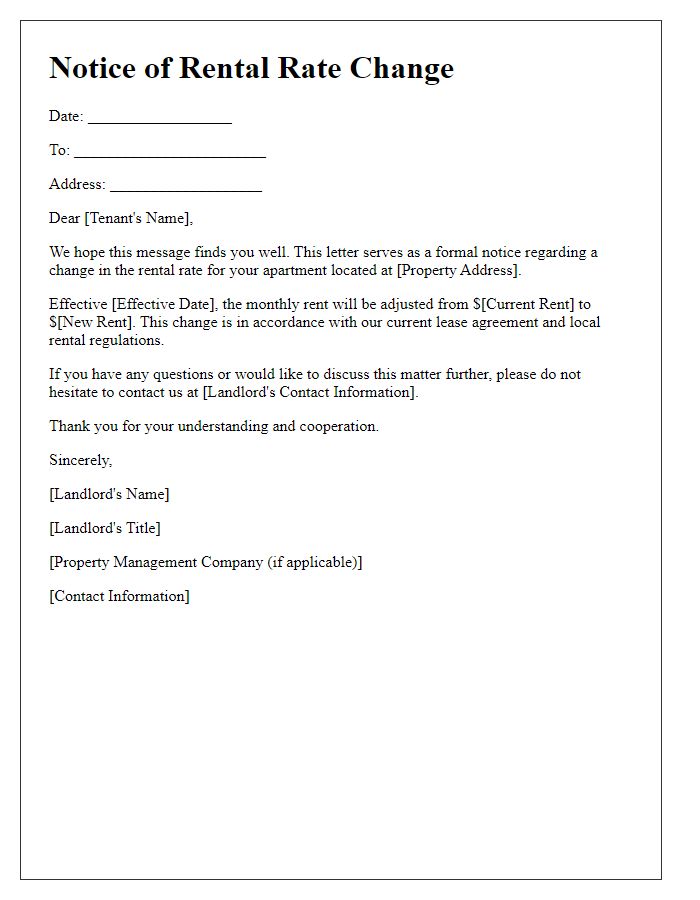
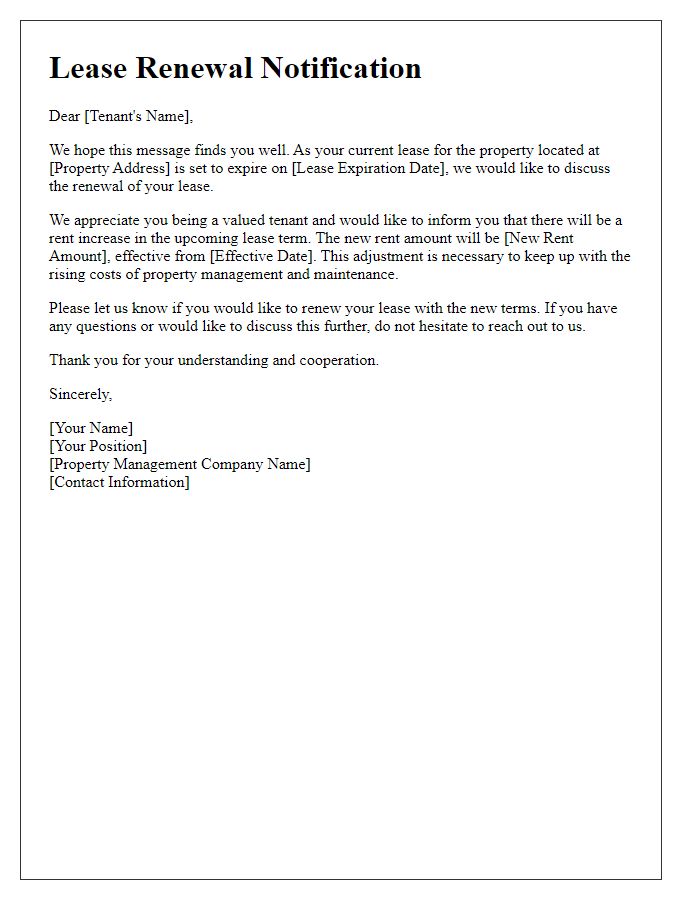
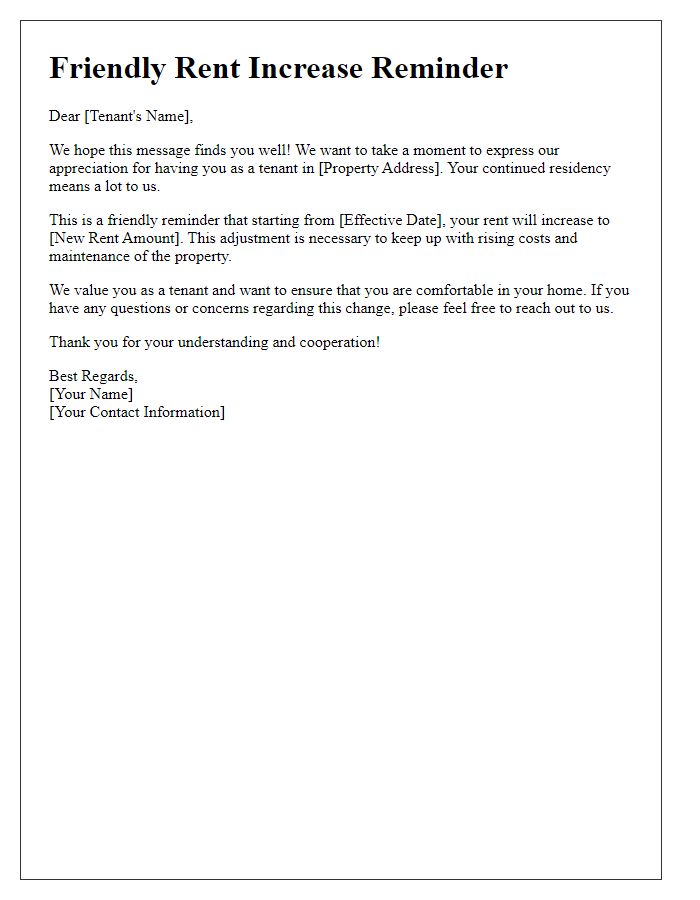
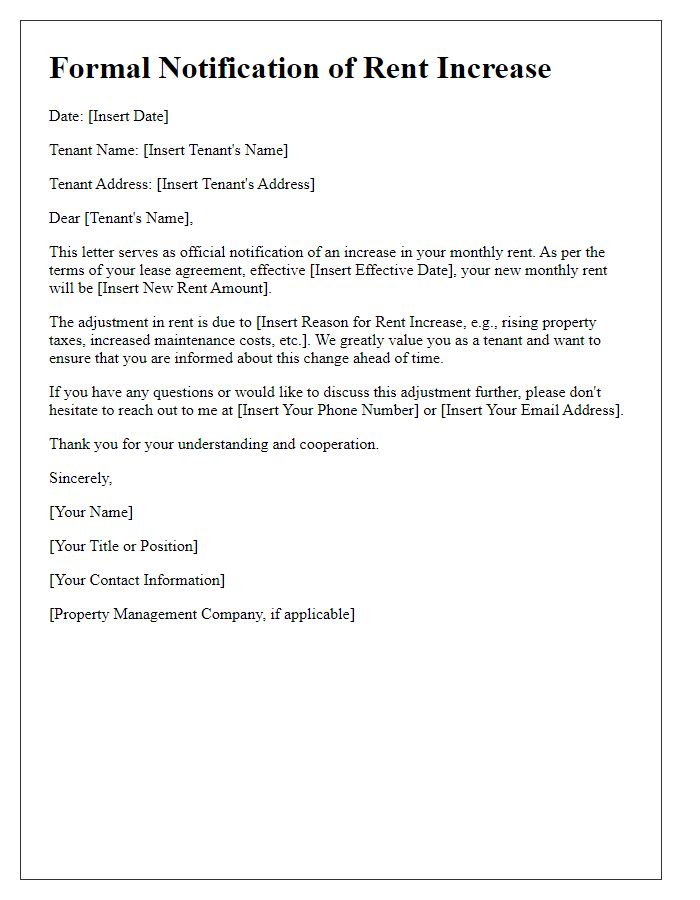
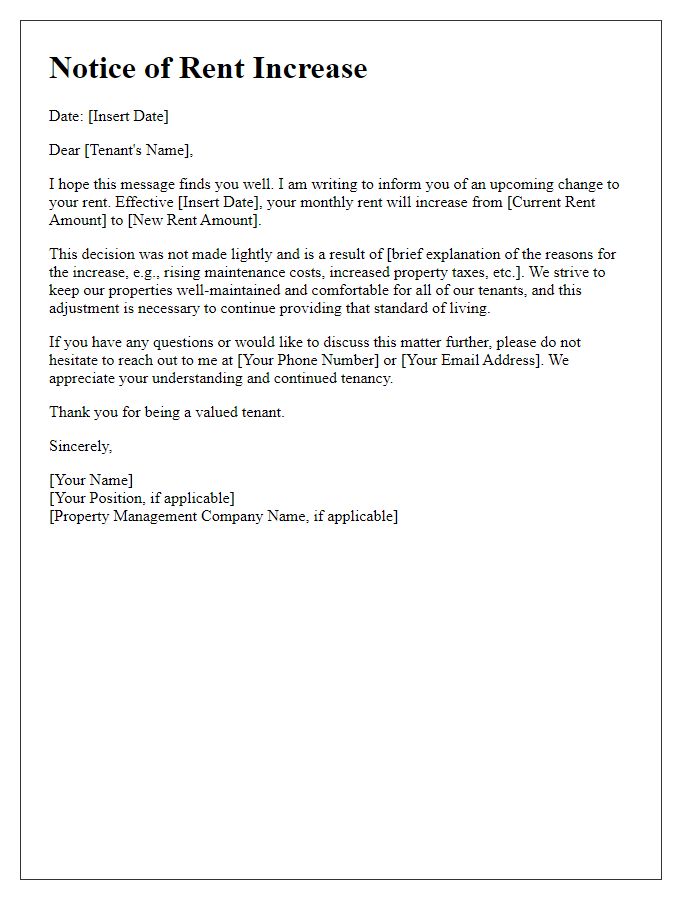
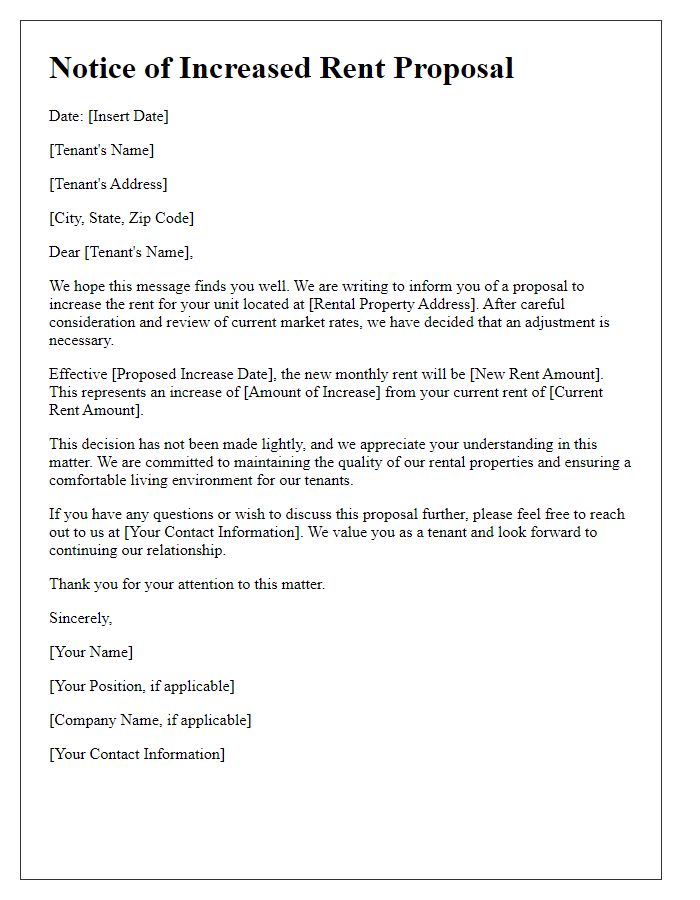
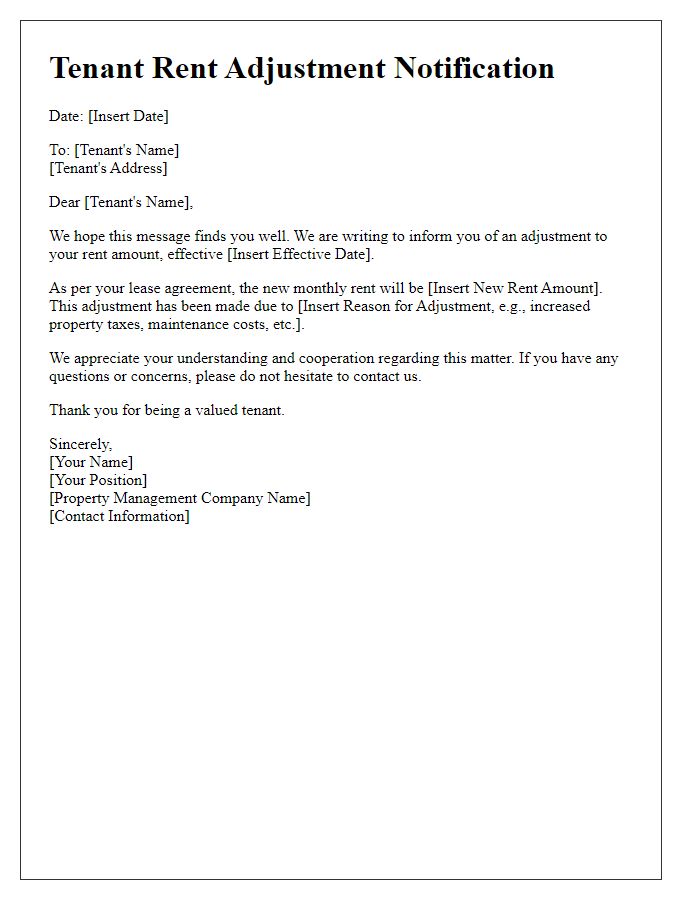
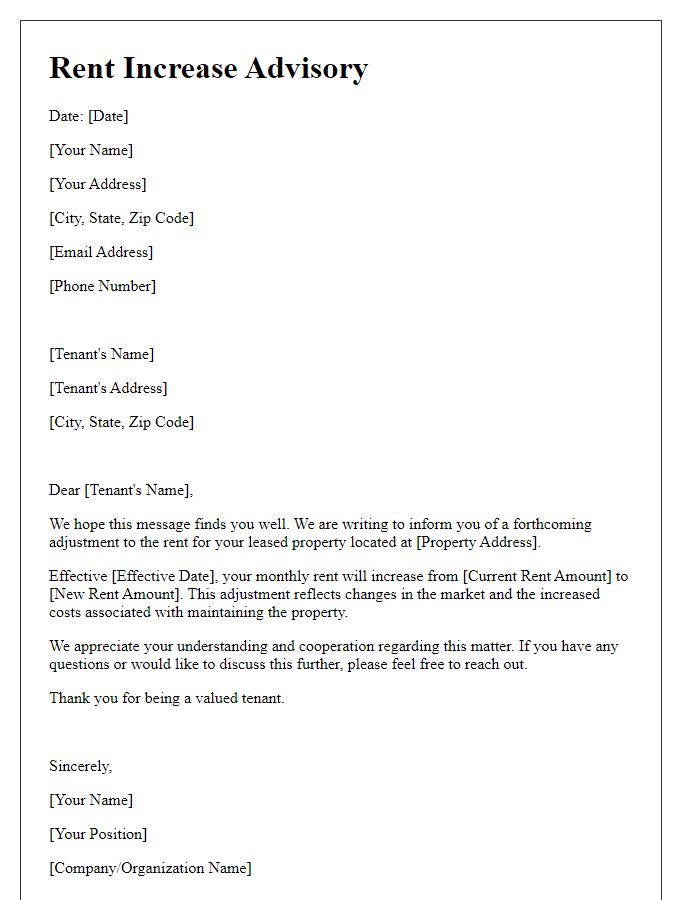

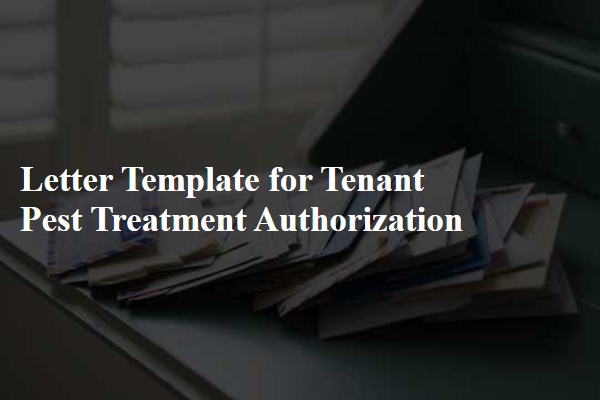
Comments